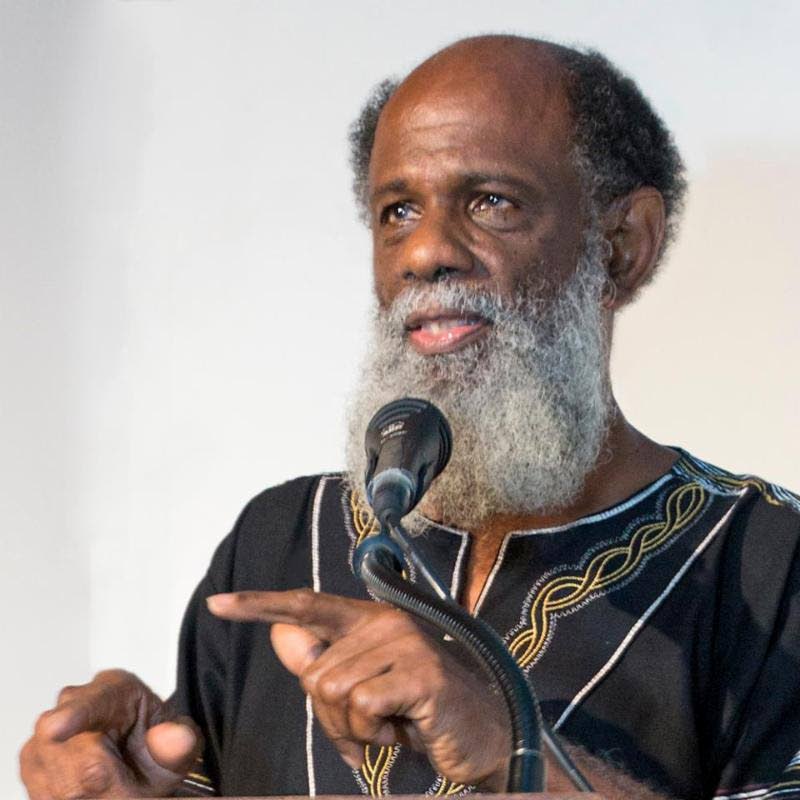Kambon: Africans most marginalised in society

Crime and the current state of the economy are two if the biggest challenges facing Trinidad and Tobago, and the African community is the ethnic group that suffers the most from the fallout of either, chairman of the Emancipation Support Committee, Khafra Kambon, has said.
“This will continue despite who holds political office if we do not attend to the underlying causes which empower or disempower sections of the society in general,” Kambon said, as he delivered the feature address for the launch of the 2018 PanAfrican Festival TT Commemorating Emancipation Day, held at the ESC headquarters on Bergerac Road, Maraval.
August 1 will mark the 180th anniversary of the end of chattel slavery in the British West Indian territories—“one of the most positive turning points in the history of world,” Kambon said. The theme for this year’s celebration is “empowerment to overcome today’s challenges.”
A positive collective identity is an important part of empowerment to deal with the challenges of today, he said, something that other ethnicities have in a stronger degree than Africans, and is a major factor influencing the harsher social fallout from the economic crisis now happening.
“There are cultural and psychological reasons for our continued economic marginalisation. We need to recognise that our African communities are more vulnerable to despair and social breakdown in a period of economic crisis for cultural and psychological reasons.
There are underlying traumas from a brutal history that have never been addressed and those traumas will continue to plague the African population until we acknowledge them and specifically address them,” Kambon said.
This trauma is not just from the past, though, he said, but reinvigorated by images in the media and a failure of the education system to provide information that would help African people feel pride in themselves.
“One of the amazing things today regarding questions of empowerment and power is that as a community we demonstrate little weight in shifting policies and action of governments that come and go, even though we have a big say in electing them,” he said. Referring to a controversial scene in American chef Anthony Bourdain’s television series “Parts Unknown,” where he had dinner with a prominent Syrian-Lebanese family, where one of the family members referred to the ethnic group as the smallest but most powerful in the country, Kambon said when it comes to influencing government policy, it is really the financial capacity of a particular community and community cohesion that are more important than the number of voters. “The truths revealed there remind us why we have to life empowerment out of the narrow political sphere of whom we vote for and recognise the need for deeper transformation of ourselves and the systems that govern us,” Kambon said. The ESC’s Emanciaption Day celebrations begin on June 16 and run until Augst 1, Emancipation Day.


Comments
"Kambon: Africans most marginalised in society"